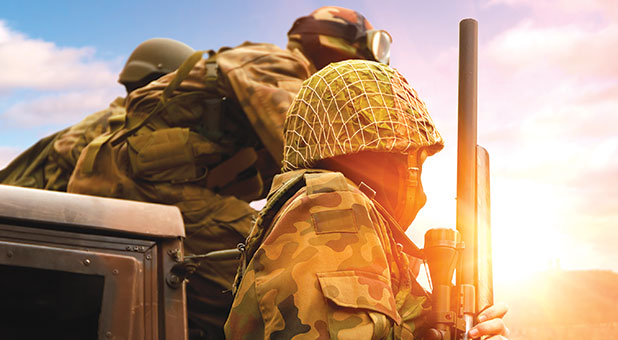Politics and War
War carries connotations of politics, but combat is a primal struggle between individuals who are generally organized into some form of fighting units. Carl von Clausewitz, in his famous treatise On War, said, “War is politics by other means.” But for the warrior who’s fighting for his life and those of his fellow warriors, the connection between war and politics has little meaning in the heat of battle. Sometimes there are even instances of combat when there is no actual “war,” declared or otherwise.
For the purpose of discussing the concept of just war, I’ve chosen to think of war, warfare and combat as conditions under which warriors are engaged in a life-and-death struggle for reasons that they believe are just—and not simply because their governments have made that judgment. In this discussion, the words war and combat are used somewhat interchangeably, since the warrior is always at the cutting edge, and he finds little distinction between the two terms.
For Justice
In Micah 6:8, the prophet asks, “What does the Lord require of you?” The answer, he continues, is simply this: “To do justice, to love kindness, and to walk humbly with your God.” That phrase to do justice is sometimes translated as “to do justly.” In order to do justice or to act justly, one must first have a sense of justice.
The true warrior has a strong sense of justice that directs his actions. The warrior sees injustice as evil and believes that fighting against it is a noble cause, regardless of the assessments of the politicians, diplomats and pundits. The warrior respects the decisions of those in positions of authority but still maintains an independent sense of what is just in regards to warfare.
The true warrior cannot accept injustice when he perceives that he can reverse it, or at least believes that his actions have a chance to do so. The warrior is guided by his sense of justice, which causes him to stand apart from others in the way he thinks and the way he acts. The true warrior is motivated by the concept of justice.
Assessing Justice in America’s Wars
It’s important that we assess the concept of just war in the daily-life context experienced by each soldier (as well as that experienced by each civilian). The individual is constantly confronted with dilemmas, situations and circumstances that could be considered war or combat on a personal level.
Many conflicts between nations derive from a formal declaration of war, but most wars simply result from one nation invading or attacking another with no official or formal announcement. The United States Congress has declared a “state of war” only five times in U.S. history, the last time being World War II, even though U.S. forces have been involved in major conflicts throughout its history.
The conflicts in Korea and Vietnam, as well as the Gulf War of 1990–1991 and, a decade later, the military actions in Iraq and Afghanistan, were not “declared” wars in the sense that World Wars I and II were, but they did have official support emanating from Congress.
America was drawn into World War II as a result of the devastating attack on Pearl Harbor in 1941. Few Americans questioned our nation’s entry into the conflict; it was instantly deemed an issue of self-defense. The premise that we were entering a just war was easy to accept.
When the conflict in Korea began in 1950, it was clearly a just war for the South Koreans, who had been invaded by their Korean brothers to the north. But U.S. involvement was a different matter. Many Americans weren’t easily convinced that sacrificing the lives of young Americans in a war for another nation’s freedom was justifiable.
The same sentiments were expressed when the fighting in Vietnam escalated in the 1960s. Many Americans questioned the rationale for fighting to sustain a corrupt government in South Vietnam.
U.S. leaders had identified critical American interests before committing our forces to combat in both places. In the prevailing view, the possibility of communist expansion was a serious threat to the entire free world. Left unchecked, the communist objectives of global dominance and conquest would jeopardize America’s future.












